
COMMON THREAD
Atop of Ain Leuh: The Artists of Dar Youk
“This collection is particularly special to me, as it holds true to the essence of why we began Tigmi - that is honouring and preserving traditional craftsmanship and ensuring that the financial rewards return directly into the hands of the artisans and their families.”- Danielle McEwan.
Atop the Ain Leuh natural spring in the Atlas Mountains, sits a village of just over 5000 people. In 1977 a group of local women founded a cooperative which has since sustained itself with minimal support, income and exposure. The craft of weaving is an invaluable link in a complex chain of ancient cultural practices that bind this community. Farmers, herdsmen grazing the sheep, yarn makers, families and merchants trading in the local souks all play their part in the process. Currently the members of the Ain Leuh Women's Cooperative represent many ages and abilities, as they integrate weaving into their daily lives and household duties.
In the western world we are exposed to so many beautiful Moroccan designs, yet the artisans that make them are merely a footnote, reduced to the term ‘artisan-made’ with so little known about the true work of these women, their kinship and individual talents. We hear accolades regarding the “artistic nature” of Amazigh textiles, yet there is no mention of the artists behind these creations.
Carpets come into being through the action of weavers but are also reflections of the collective consciousness of weavers. The weaver and the carpet she is making are interconnected. The carpet cannot exist without the weaver and the weaver needs to make carpets to exist.





The women of Ain Leuh Cooperative enjoy their work and have strong binds to the cooperative itself. Many of them have spent years visiting since childhood, and it serves as a second home to themselves and their families. Spending their days together, they share meals and weave in partnership, which gives them the opportunity to perpetuate their ancestral tradition and is a source of income.
In recent years the cooperative has partnered with Nina Mohammad-Galbert from Artisan Project, a pioneer of sustainable sourcing and ethical design based in Tangier. Together with Nina, the collective have refined their practices and solely use natural hand processed wool sourced from the local souks with only plant-based dyes pass through the hands of the weaver. Through this partnership with Nina and her support, the cooperative has grown and developed into a space that promotes the women and their families and allows them to take control of their financial futures. Steps like this are significantly improving the environmental and human impact of the rug industry and shines a light on the plight of the women weavers. Armed with knowledge of this, there is hope for consumers to be aware of the processes and make their own decision on how they wish to support this time-honoured tradition.
The carpets and flat weaves are part of a tribal history that survives within the textiles, reflections of superstitions, artistic expression, and the land - they are mirrors.
Wool is considered a divine force and the Amizagh people, who have deep rooted superstitions and believe that the wool is inhabited by invisible forces that protect and bless all those who come in contact with it.
The weaver has to become one with the wool - to touch it, feel it and understand it. It is no wonder then that the very act of weaving is considered a sacred one. A blessing ritual is normally performed before the very first knot is made, also before a completed rug is freed from the loom. The loom is regarded as a sacred entity and is believed to have a spiritual quality. The loom, the wool and the weaver all have a deep spiritual connection during the process of weaving and become one symbiotic ‘being’. The loom in a traditional setting is the unifying fixture in a room and often placed in a central communal space, where the family gathers for meals and the visitors are welcomed.


The loom is regarded as a sacred entity and is believed to have a spiritual quality. The loom, the wool and the weaver all have a deep spiritual connection during the process of weaving and become one symbiotic ‘being’.

Tigmi Trading’s new collection Dar Youk launches today.
Tigmi would like to acknowledge and give reverence to the women who helped to conceive this collection...
Nina Mohammad-Galbert.
Khadouj Ouchekak & Hajou Ammraoui.
El Hachmia Douiri & Khadija El Aabdi
Fatima Abaraou & Mahma Bahousse
Rachida Ghenam & Fatima Balhoussaine
_____________
Discover Dar Youk


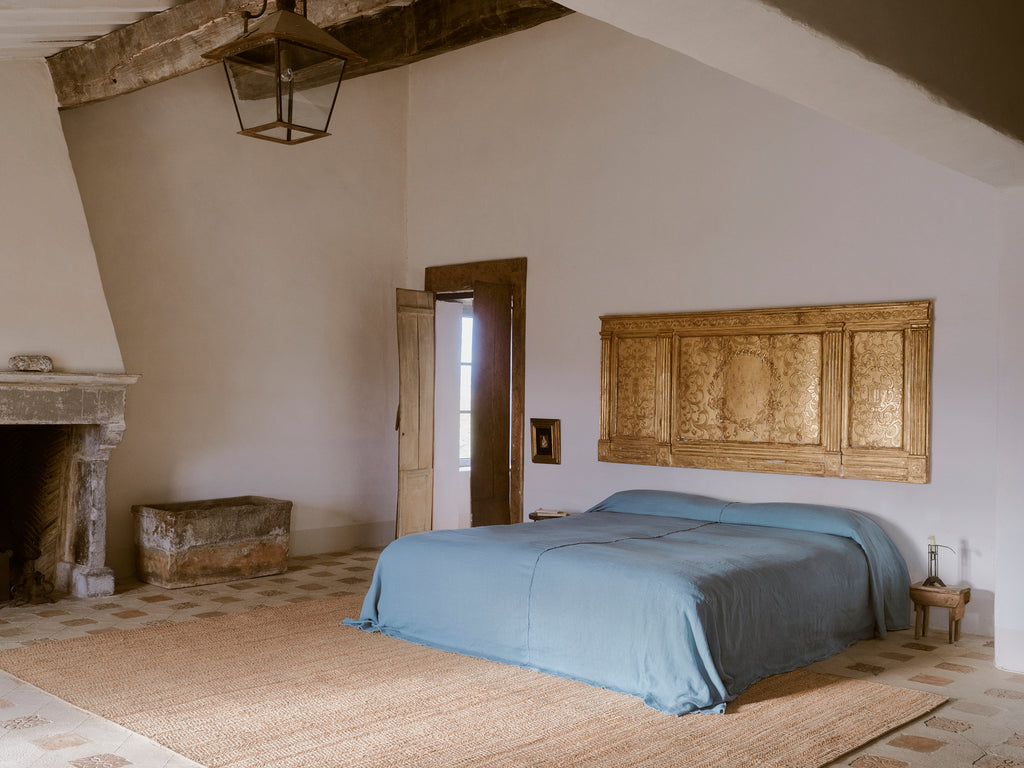

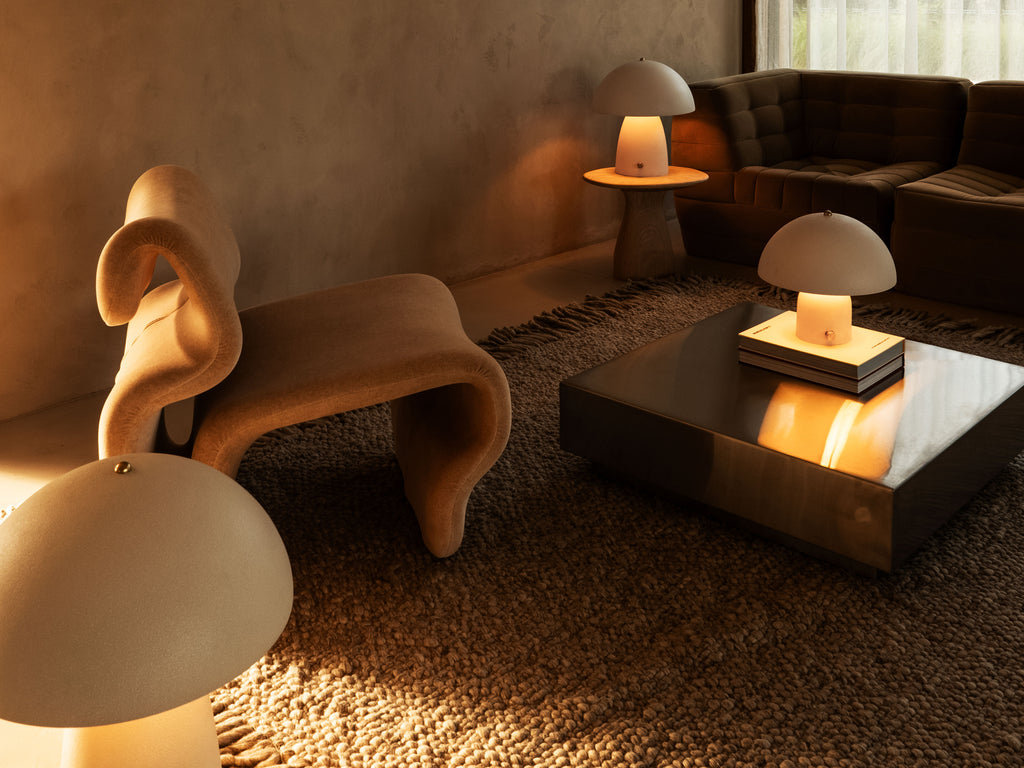
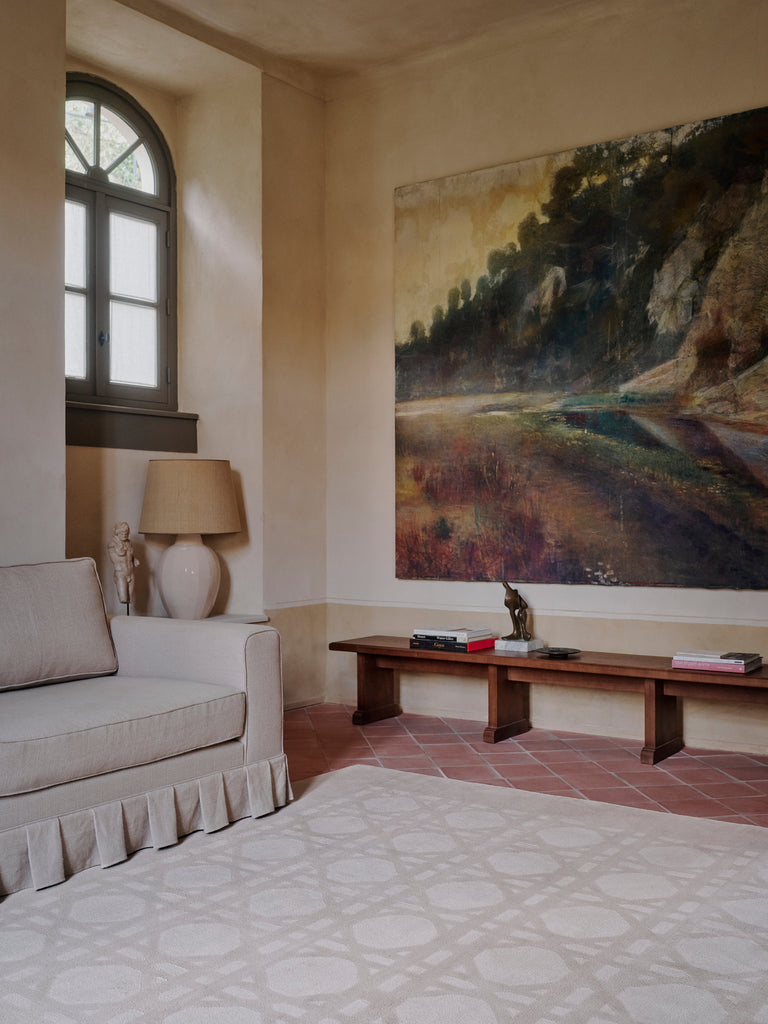
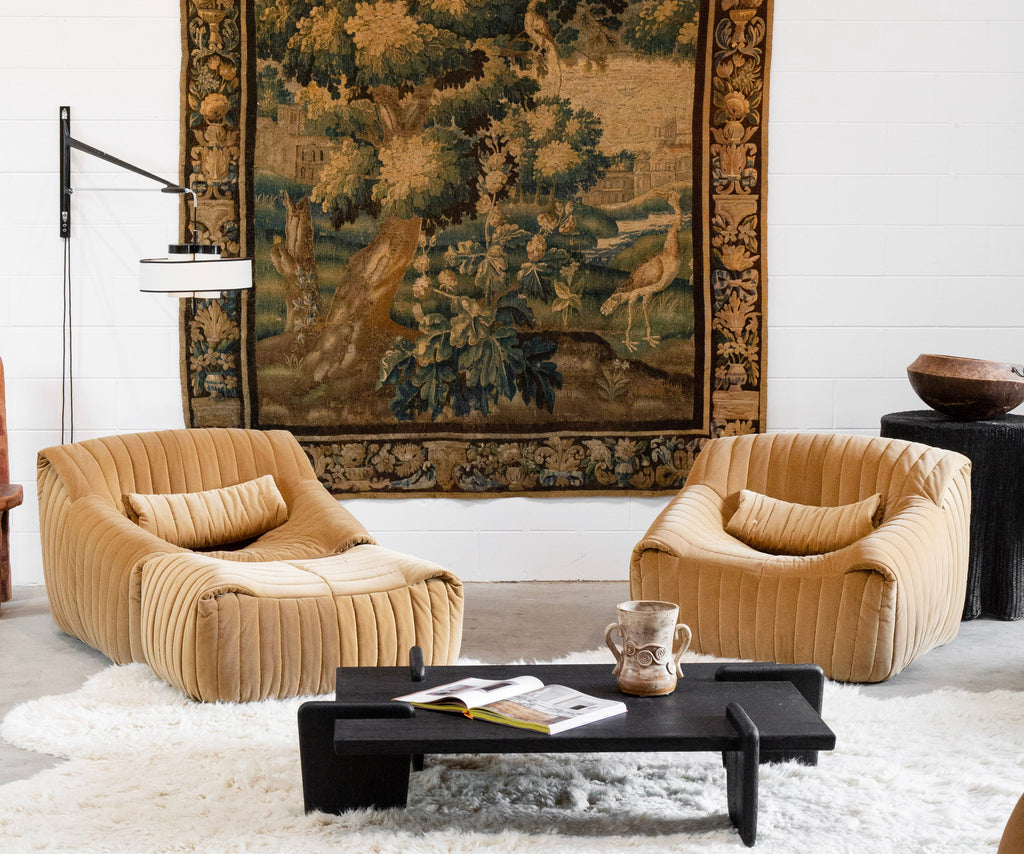
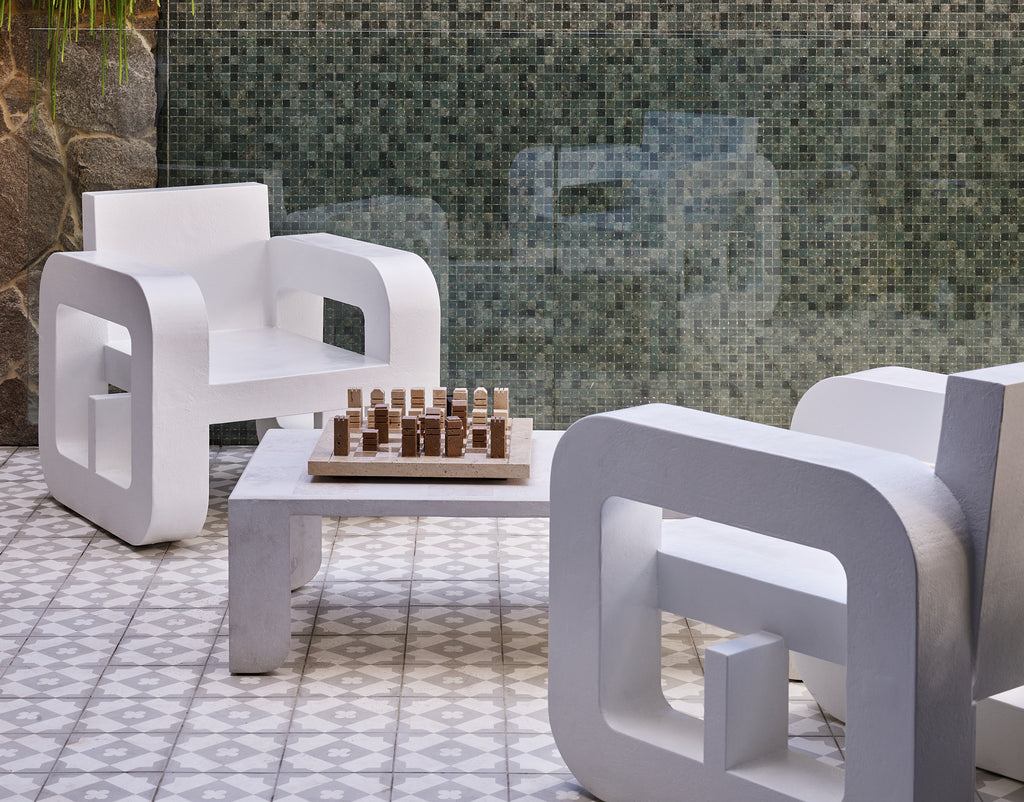
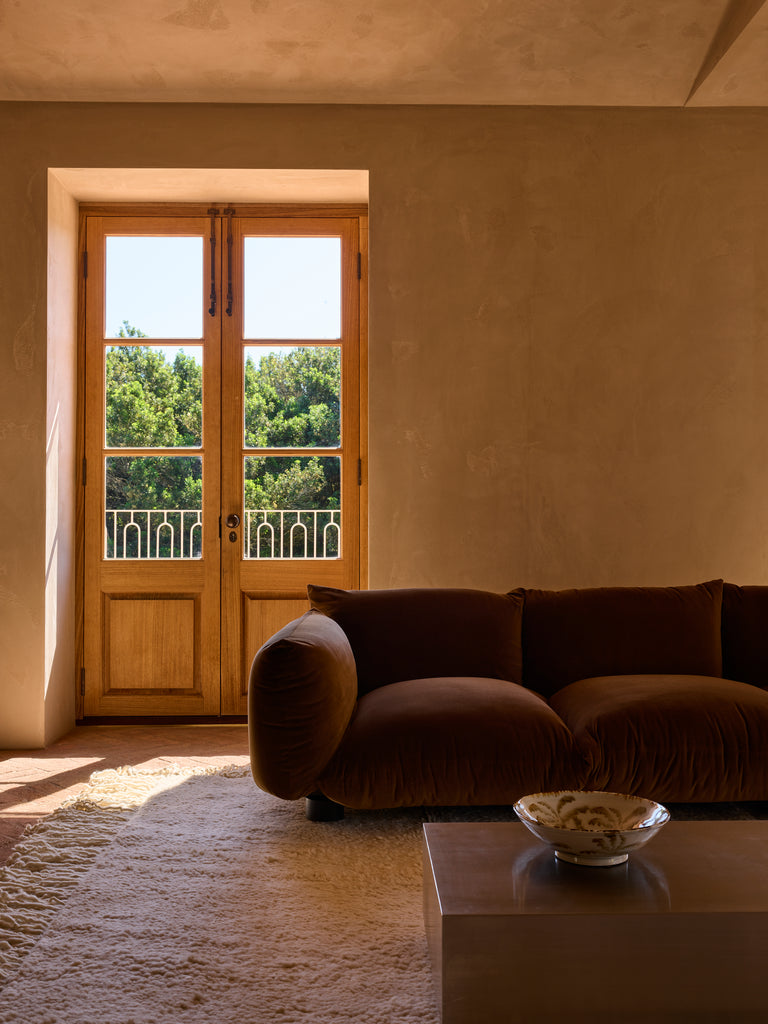
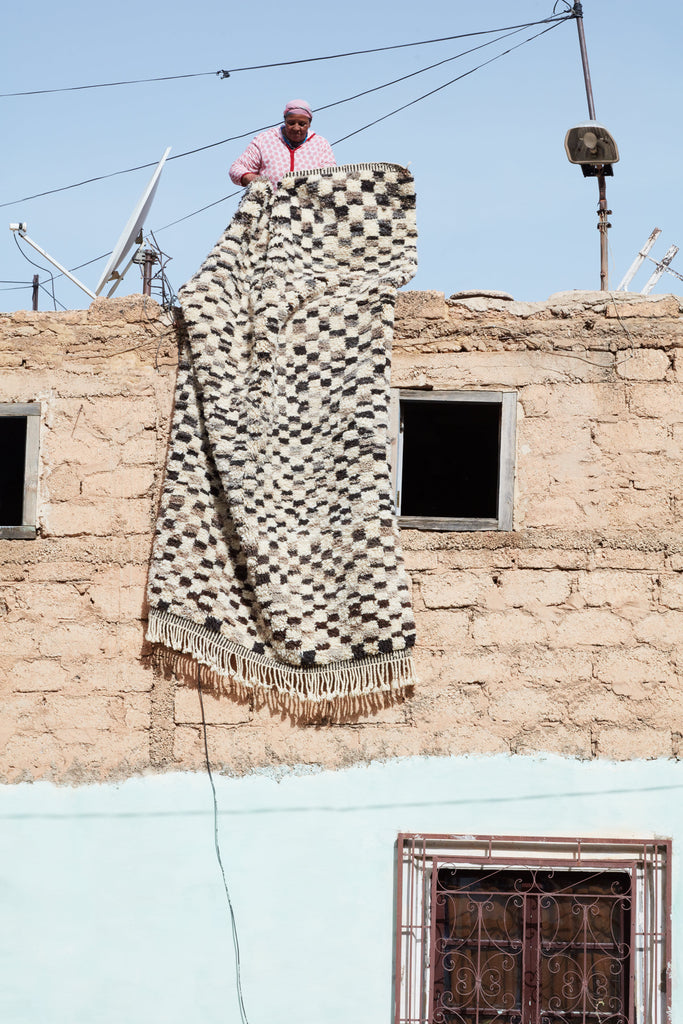





Comments
Jane Gubbins said:
Would these rugs work under dining table or too thick. Just gorgeous
October 02, 2021